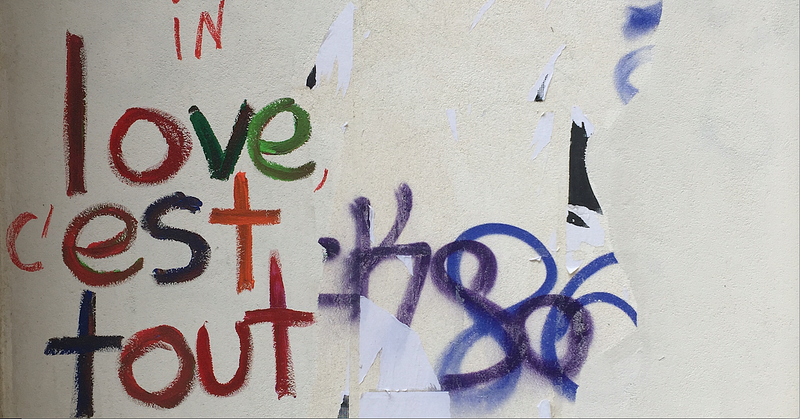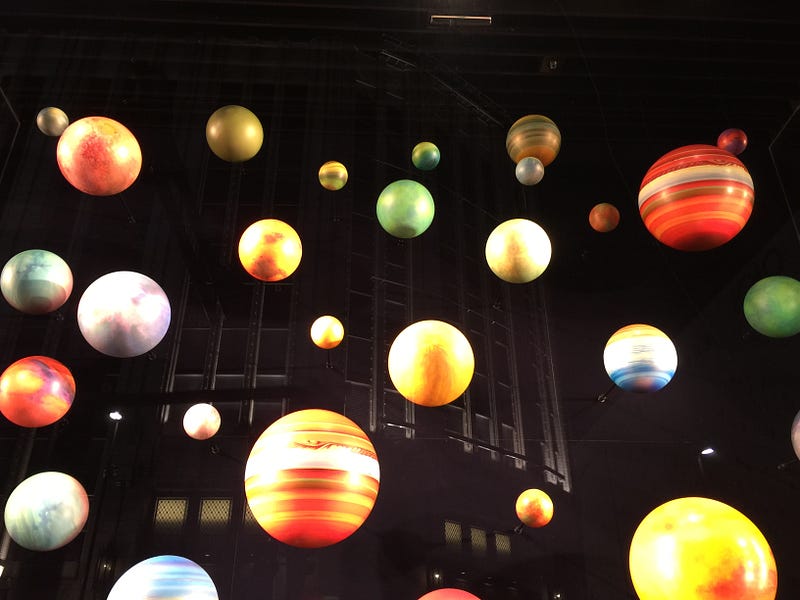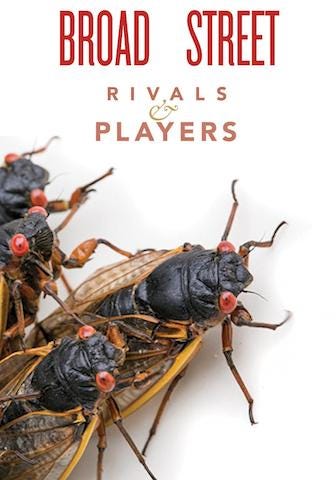“I telegraphed to the world that I was ready to meet someone …”
A feature from our “Rivals & Players” issue, with photographs by the author.

Seek and Hide Again
By Lise Haines
*
A man told me on our first date, over roast chicken and Chardonnay, that he’d grown a beard so he wouldn’t see his mother’s face when he looked in the mirror.
On another first date, a psychiatrist confessed he’d had sex in his home office with a patient while his ex-wife, also a therapist, held sessions in her office directly below his, for two full years.
These are the stories I share when someone asks how the search for love goes.
*
My post-divorce dating life began a year or so after loading up a van and making the move from California to Boston to find a teaching post, my seven-year-old girl and her stuffed animals in tow. I moved us into a two-bedroom apartment in a good school district, settled us into a new town, a new rhythm.
The second year on the East Coast, my first novel came out and I got a full-time teaching post in a city intense with competition. I felt immensely lucky. Then there was the year at Harvard that offered childcare when my daughter was sick and I had to get into work. My second novel was out and my stepfather flew in and ate lunch with me at the faculty club. He was my best friend and the measure of all men. It was a meal of toasts to hard-won achievements and things optimistic.
Despite the magical aspects of this journey, my daily struggle was to balance the careers of full-time teaching and full-time writing while replicating the stay-at-home mom my daughter had come to rely on. I supplied our life with everything we needed, including first-aid kits for home, car, and outings. Around stacks of student stories, I made Mickey-shaped pancakes, hosted play dates, and avoided sleep so I could put the next book together. Knowing You can’t meet anyone if you stay at home all the time,I pushed myself to attend readings, the occasional lecture, movies, and museums. At my daughter’s school, I relished the plays and choral performances she was in.
I felt certain I would find a new partner — not right away, but in time. I telegraphed to the world that I was ready to meet someone.
Some friends were willing to coach me over late-night calls. They rooted for the simple, sincere men who, I reported, let their humanness rise quickly to the surface. Like the widower who told me on our first meeting that he wasn’t sure he could go on without his wife. I became a temporary grief counselor, holding his hand as we made a dash from the restaurant and the rain spattered our faces — both of us had forgotten to bring umbrellas to dinner. We tried again, on two additional nights. Umbrellas now tucked securely under our arms, we attempted to slip past his wife’s ghost. Things never clicked, but we wished each other well.
It didn’t help my dating life that single men of a certain age were scarce in our sleepy suburb. And I soon learned that single mothers tend not to be invited to dinner parties unless they’re as familiar as family.
“Maybe I’m just no good at this,” I told a friend back in California. “Maybe East Coast men are too different from the boys of my youth.”
“That’s the beauty of online dating,” she said. “Someone for everyone. Don’t give up.”
After I read to my girl and wrapped up my work for the night, I sifted through online faces. Reading up on how to write a good profile, I posted one that was not too long, not too short, with images of travel and what I hoped were warm, relatable pictures. Sometimes this drew men who wanted to sell me things like oil paintings or a chance to sponsor a green card.
And some expressed disappointment. In a coffee shop one man said, “On the site, your eyes look as blue as headlights. But they aren’t.” Then he looked in an unbroken way at the woman’s legs across from us as she nibbled at a pastry.
I tried other sites and continued to believe love would arrive though I soon realized most men my age don’t understand any more about modern dating than I did.

I chose to see those early dating years as initiation rites, a form of hazing that would eventually lead to the right man. Over Mexican food, a defense attorney with a Beacon Hill office and a slim Mercedes told me there were seven women ready to marry him at that moment. Pushing a chip around the suiza sauce, I tried to read his expression. Finally I asked if this meant he was sharing bodily fluids with seven different women. He smiled as if we were in accord, and told me he had an addiction and wanted to see me again.
I looked for men of smaller means.
Money was never the draw. I went out with at least one fireman, photographer, poet, teacher, artist, accountant, gardener, and tugboat captain. An entrepreneur seemed safe; they tend to lose money along the way. I had a drink with a man who had many failed startups but still kept high hopes. We took a stroll through Harvard Square, and when he paused by a gaming parlor, he pointed to computer screens where characters gunned down people in the streets. He said that was how he treated his competition.
My response to these dates was to hide my profile, spend more time curled up with my daughter watching animated films, approach the gym with zest, and see if I could write something that contained the chaos I hoped to keep from our door.
At first I didn’t tell my daughter I was dating. I had been a child of divorce and know what it’s like to want your parents to reunite. But in her middle-school years, when she began to encourage me to start looking, I said I would love to meet someone. I assured her I’d try to find a man who would be a good friend to both of us, and that her father would always be her father.
Meanwhile, I watched some of my single friends give up their own quests, remain open but not online, go in and out of relationships — a couple of them sticking — or settle for less than divine partners, which I think of as filling and leveling. These less-than-divine people act like grout, securing the business of life with sex and minimal companionship.
You have to have a certain skill for grouting. I do not.
*
As leaves swirled over the cobblestones of the Boston Common a couple of years ago, the famous swan boats put away, I had a date with a widower, a European man who wore socks with his sandals. At first I didn’t know what to do with his tweedy ways, his business acumen, and his scientific understandings. I wear black with mismatched earrings and chunky boots, and I lose myself in novels. But I found I loved our time together. I was ready to send my internal guards off on a ferry while I mastered being on solid ground again.
I read articles on science and business. We talked, made love, and began to feel at home. He was a wealthy man, it turned out, with a house built for size. The garage could store ten cars, and they could be kept running for a quick getaway. There was a powerful ventilation system; he showed me the fans. He also displayed the twelve-person whirlpool upstairs and the many empty beds. He introduced me to his sweet grandchildren. He took me to his lake house, where we explored the tubs in the various bathrooms to see where I might want to soak — and did he have any bubble bath?
A man in a busy state of retirement, he devoted time to angel investing and charitable causes. In the early days, he asked more than once if I would always want to write and I said, Yes. I had begun to write in earnest when I was five, so it is more than a habit, more than a way of seeing the world.
While he was away on a three-week trip, we discussed with more intention the fact that I work. My teaching post, he said, was something he could fix,but it would be complicated, and he wasn’t sure about my writing career. As I understood it, writing takes too much devotion. It seemed he wanted all one had to give, a woman who could be available to him round the clock.
I took a confused breath. I had been straightforward about my life, precise in my profile.
He began anew. I was the perfect woman for him, I had everything he wanted, but yes, my writing career was problematic. It was, it seemed, toocomplicated for him.
This was as close as I’d gotten to finding my partner over fifteen years of searching and giving up and letting go and searching again. It seemed the things I had done through years of willed insomnia to keep my little family going, had doomed a chance at happiness. I remembered how easily the heart is cut open and why I stock so many first-aid kits.

My daughter is out of college now, at her first big career post, and since we live in the same city I find every opportunity to take her to lunch or shopping. Last month in a dressing room, handing her a blue dress I hoped to buy for her — it matched the blue streaks in her hair — I mentioned that I had recently had a dinner date. I didn’t want her to worry that I’d given up. She wants me to find love.
But we have arrived in an era of fake profiles and unending scammers, and despite the wild exceptions, the general trend has men enjoying the company of younger women. There’s an endless selection from which to pick, like a menu with a glut of desserts.
My profile inevitably attracts older men. If I keep going, sifting and winking and favoriting and arranging to meet, I might be signing up for caregiving and funerals. Some claim even a few good years with one person are worthwhile. I’m not saying I wouldn’t leap into that unknown, but such a man would have to be a good fit, and that’s what I’ve pursued all along.
One of the phone agents at Match.com says, yes, I can hide or turn off my profile, but it’s impossible to destroy it. A photo and caption will always remain behind a milky screen. I will be there but not there, not available anymore; a ghostly presence no longer able to send or receive emails, go on fraught first dates, sit in coffee shops waiting.
I don’t know that I’m any better at hiding for long periods of time than I am at revealing myself. These are all acquired skills like knowing the way people mix sand into their grout or how one proves their capacity for more than one rich devotion.
Sometimes to get a handle on this dance, this desire for coupling, I imagine I’m gazing at Earth from a distance. Maybe I’m on that first flight to Mars with a weary group, hoping to get a few things better this time. From my portal I see our planet in a blue-and-white swirl, all 7.6 billion of us perpetually in motion, reliant upon gravity, and comprised of so much cool water. We connect like atoms that bond to make compounds, and we create the Hadron accelerator to break the smallest bits into particles. We’re magnets that click together as if manufactured for a magic set, and just as easily someone turns us around. Our like poles face each other down and simply can’t join.
But still — even if something, the right thing, has already passed by my glowing window as my face gazed out at a milky sky, and even though I know I am only a speck inside a speck — I hope love never becomes extinct.
*************************************************************

Lise Haines’s latest novel, When We Disappear, came out in June 2018. Her previous novels are Girl in the Arena, Small Acts of Sex and Electricity, and In My Sister’s Country, and her short fiction and nonfiction has appeared in journals such as AGNI, Ploughshares, and Cross Currents.
******************
Access the entire issue by clicking on the cover above or on this title: “Rivals & Players.”









